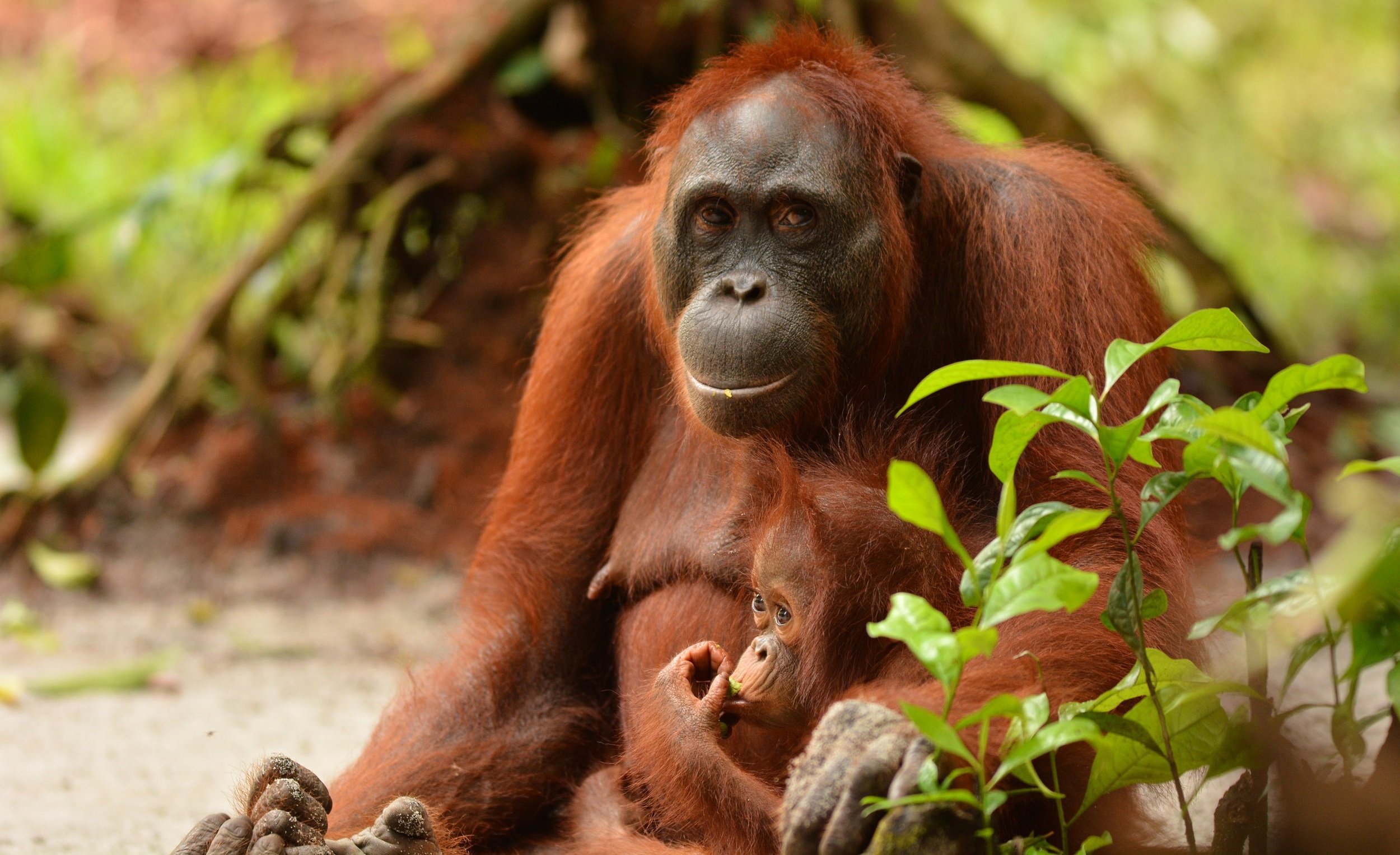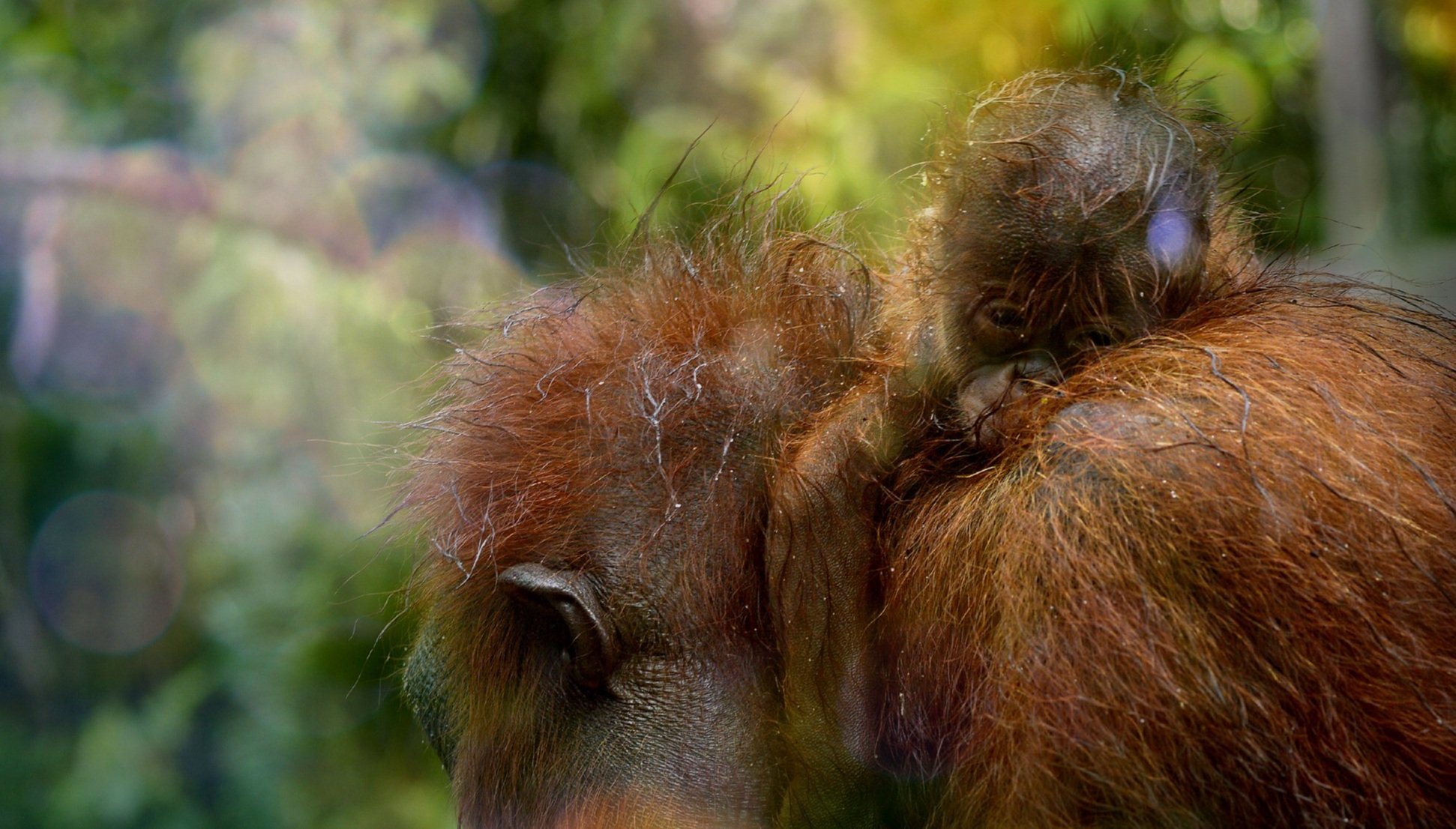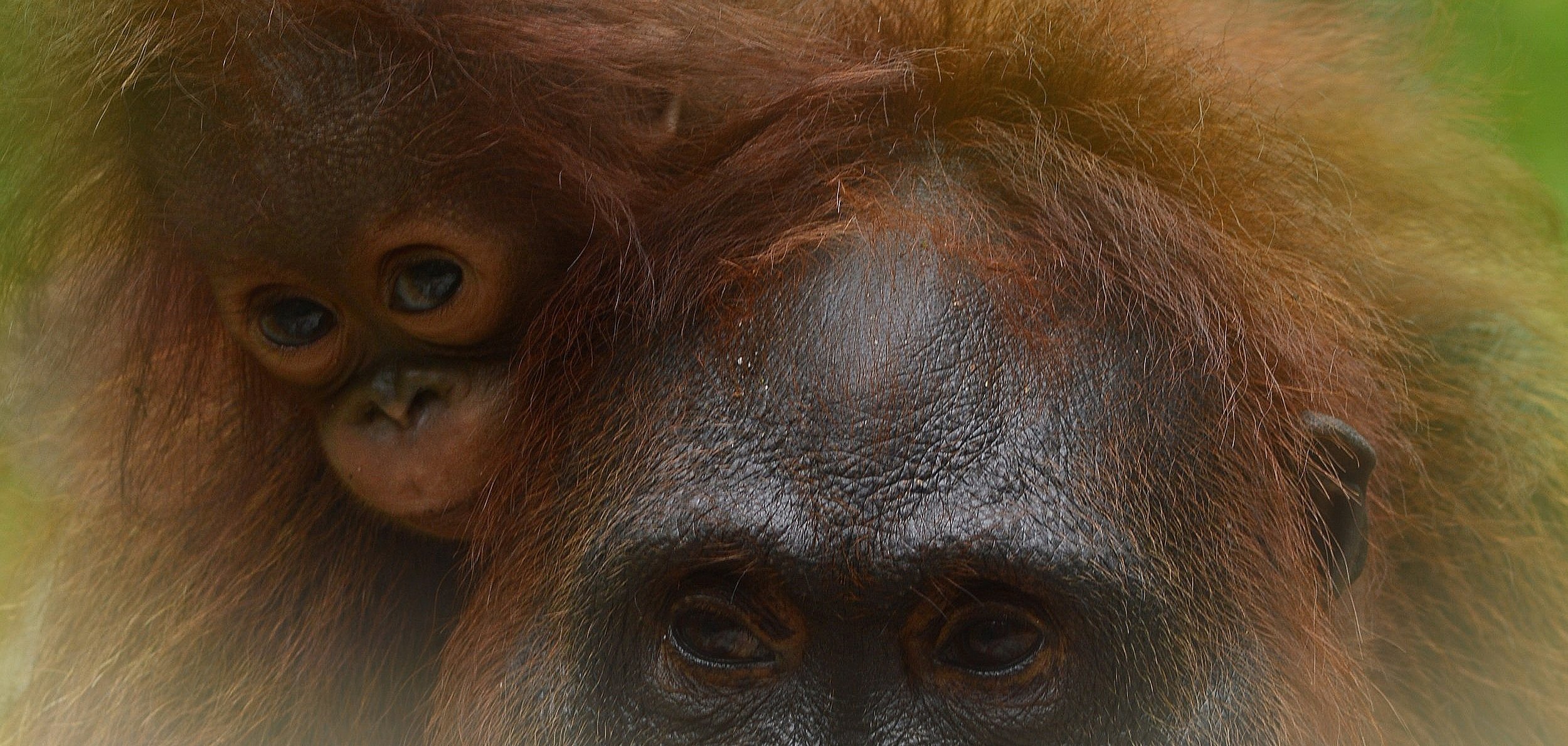It’s strange to think that 20 years ago, if an orangutan outside of a protected forest needed rescuing, there were few secure places they could be released in Central Kalimantan, Indonesian Borneo. Thankfully however, with the establishment of the Lamandau Wildlife Reserve, great apes in need have a safe haven where they can be set free.
Six-year-old female Amoi (below) was one of the early orangutans to be translocated to the Reserve in 2004. Swapping a cage for the forest, it was wonderful to transport her from the Orangutan Care Centre and Quarantine (run by Orangutan Foundation International) and release her into the protected forest around Camp Siswoyo.
Growing up alongside humans meant that Amoi had a very tame nature. In fact, to start with she seemed to prefer spending time around camp instead of exploring the surrounding trees. Soon though she really got into the swing of things, and after a few years she was ready to give birth to her first offspring. Our field team were thrilled to discover that Amoi had adapted so well to her new home in the wild, but in a devastating piece of news shortly after, we learnt that she had sadly lost her young. It’s not uncommon for first-time orangutan mothers to lose their newborn, but reassuringly we would soon find out that Amoi had not lost her mothering instincts.
In 2008, another adult female orangutan named Ruta unfortunately passed away leaving her young son Richard to fend for himself. Our team weren’t sure how Richard might cope as an orphan in the forest, but with a little encouragement we discovered that Amoi was happy to take the inexperienced young orangutan under her wing. She’d become his surrogate mother. The pair prospered in the forest together and when Richard was ready for independence in the wild, Amoi was fully prepared for the next chapter of her story when in 2013, along came Alex.
Our staff fell in love with Amoi’s daughter Alex the first time they laid eyes on her. Initially she was so petit that it was difficult for our team to identify her sex (hence why she was given the unisex name). Even after a couple of weeks Alex was still tiny, in fact she could barely lift her head from her mother’s side (above). It’s amazing that this little primate even had the strength to hold onto her mother as they travelled through the forest, but after some time Alex finally began to grow and demonstrate her character.
In the trees around Camp Gemini within the protected habitat, mother and daughter would often be seen playing together and foraging for fruit wherever they could. The years of experience Amoi had built up were finally coming into practice, she’d proven that she could successfully raise an infant of her own.
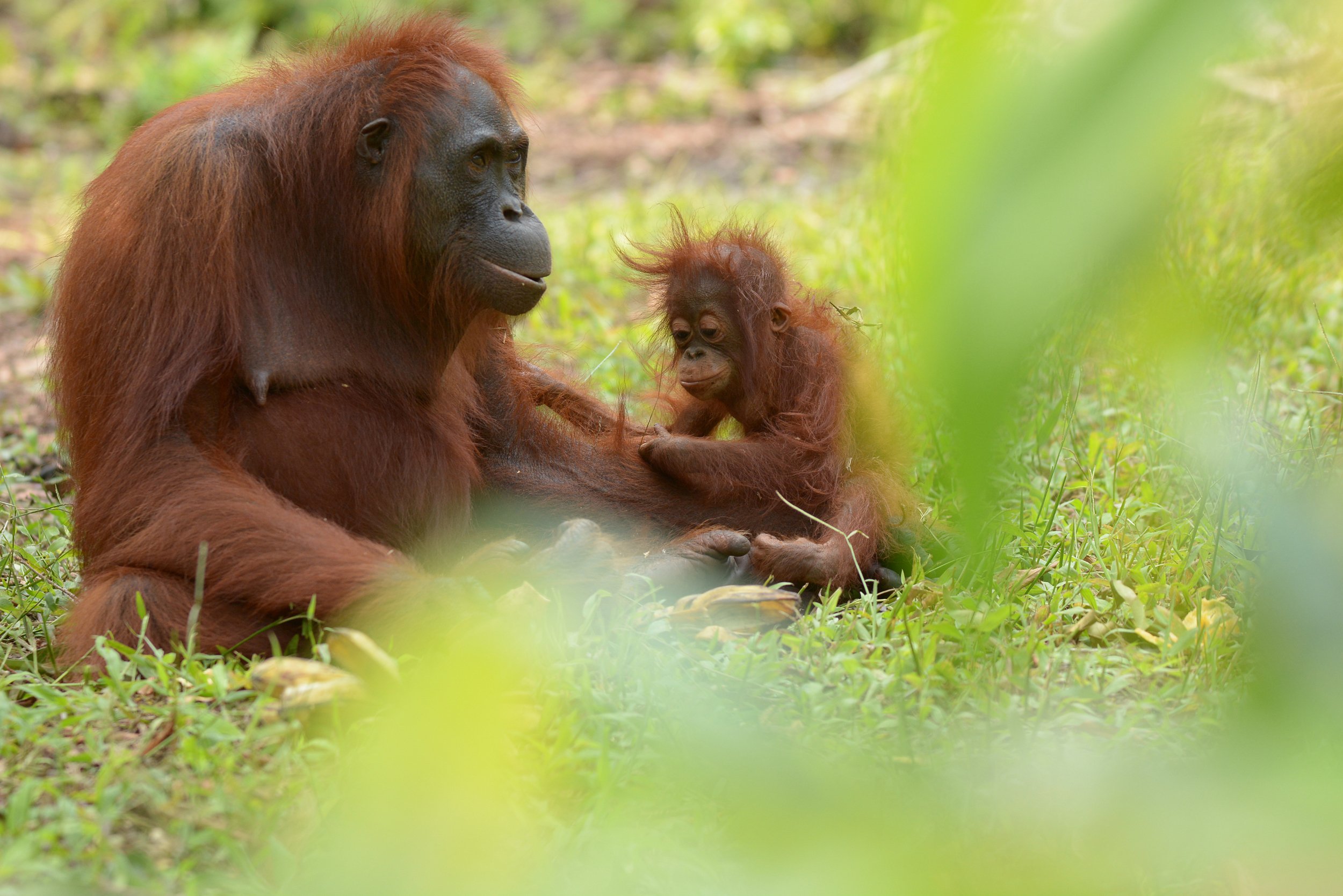
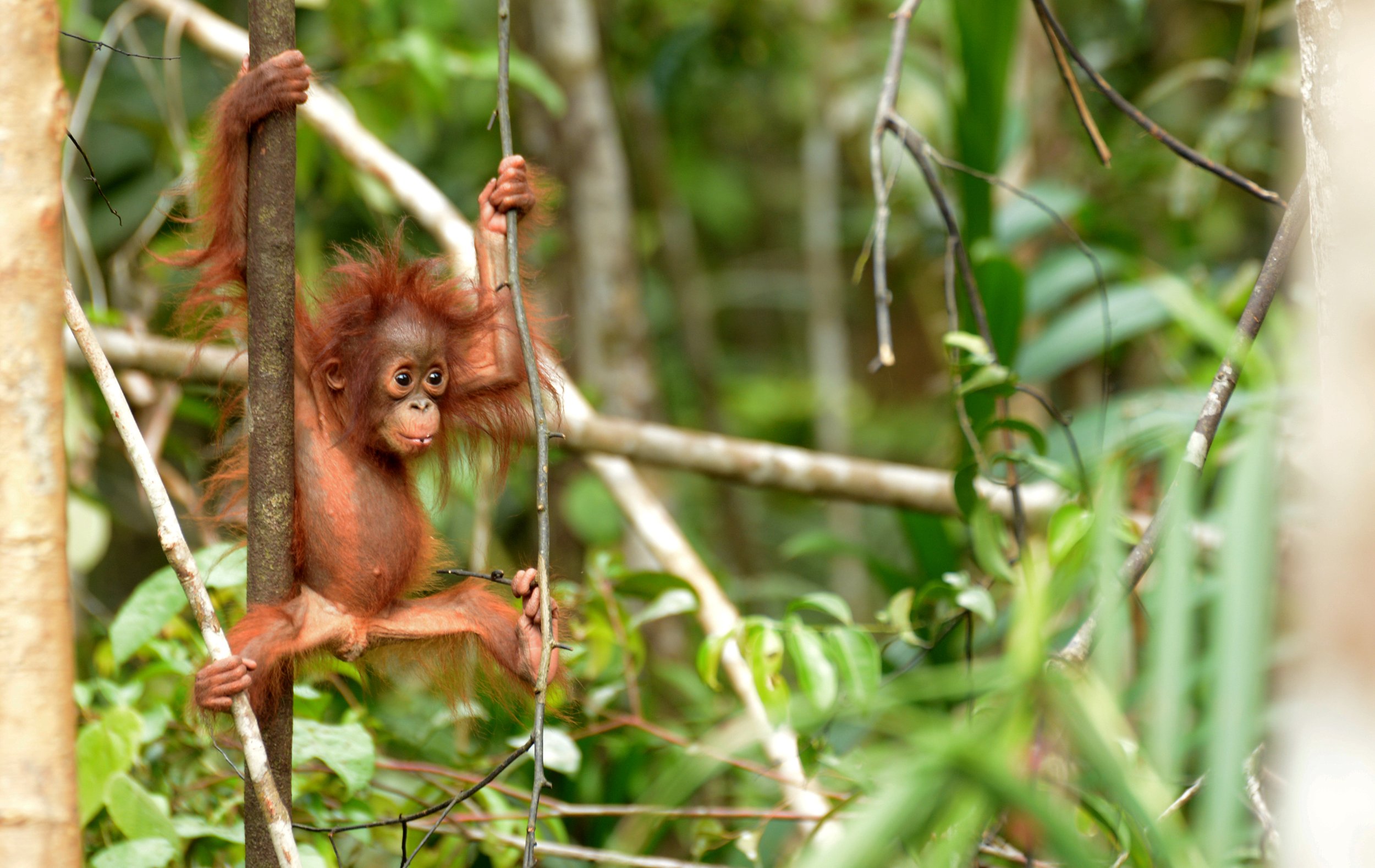
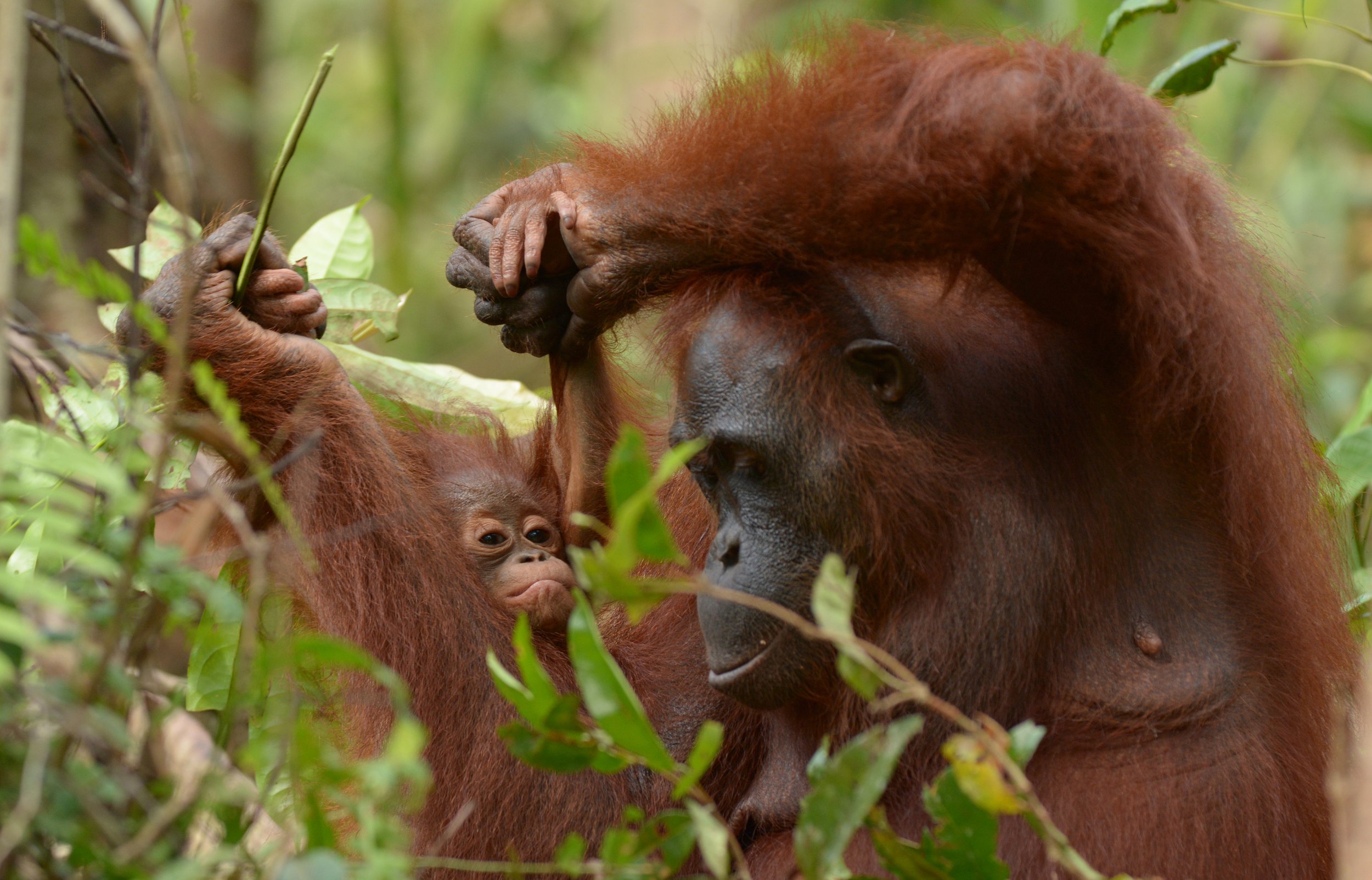
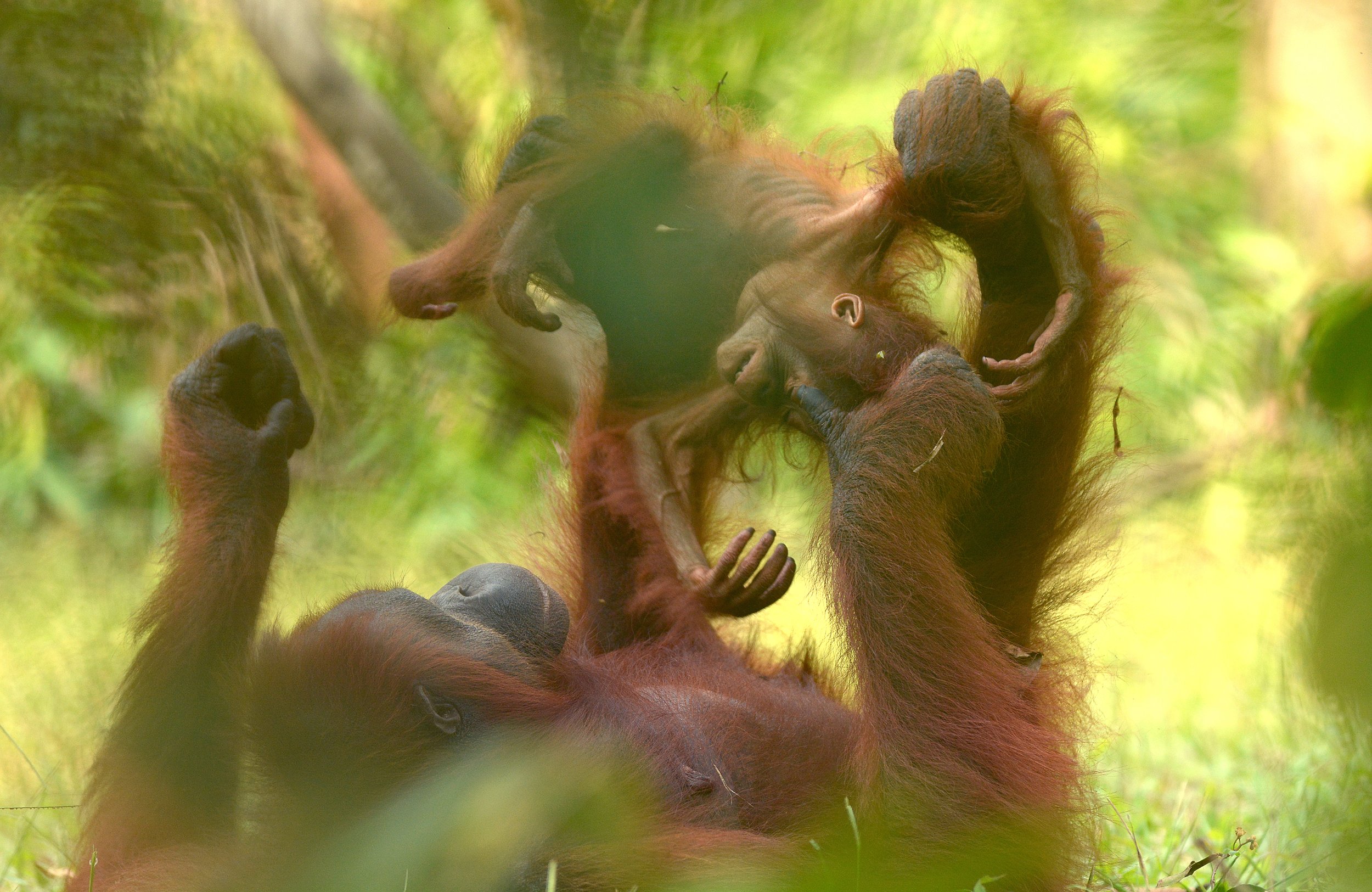
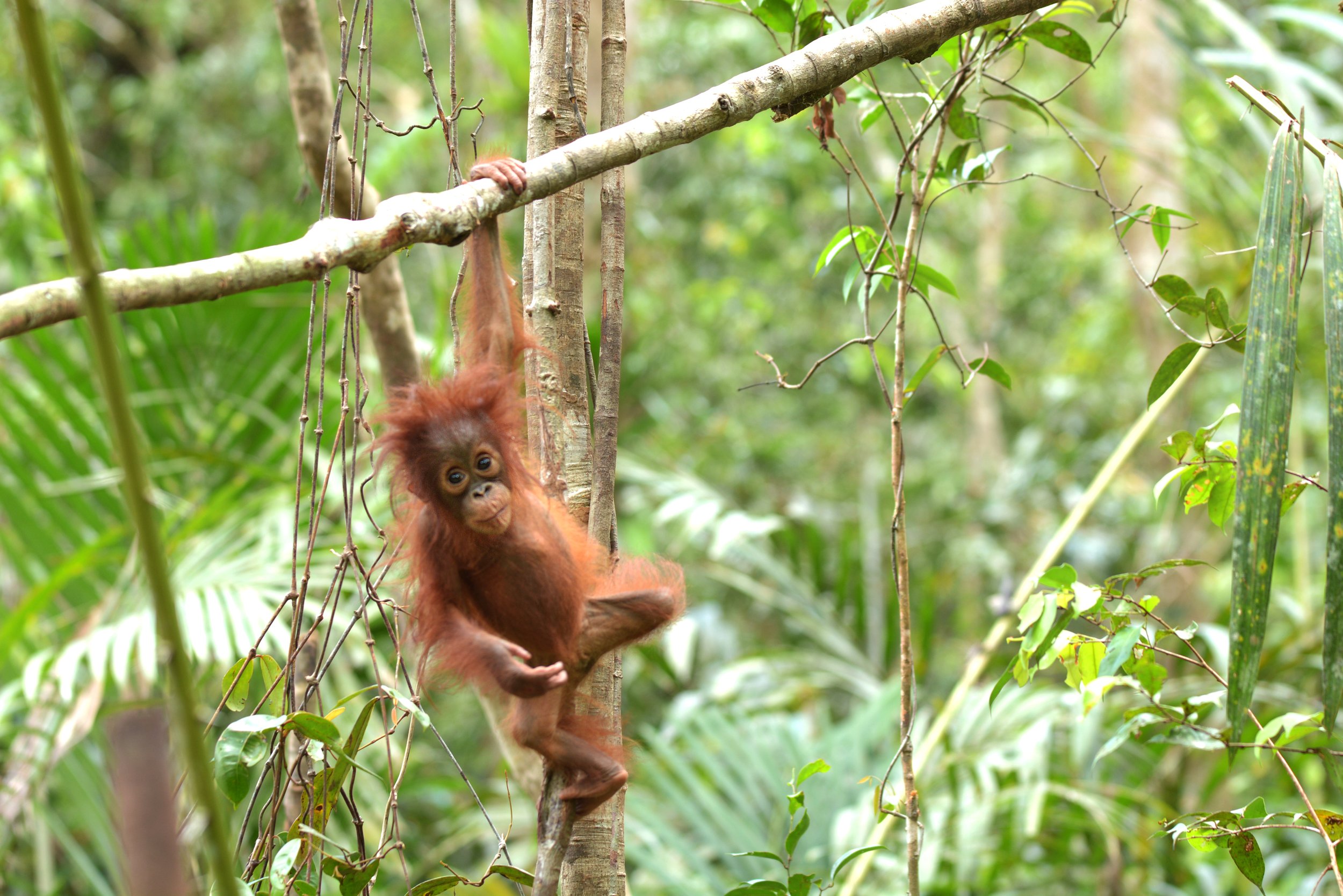
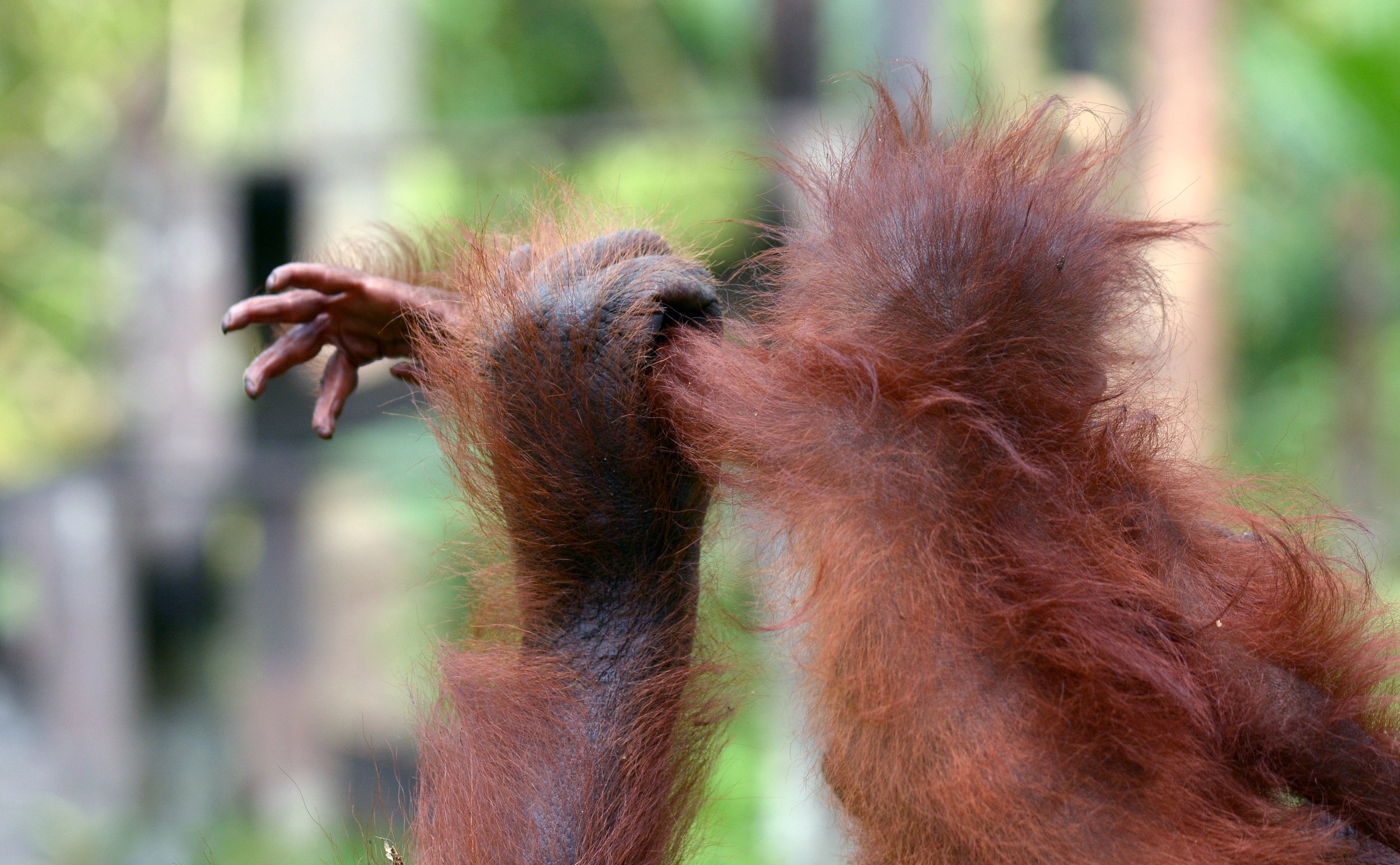
That was until the moment in 2016 when Amoi and Alex ventured deeper into the forest and out of sight. The Lamandau Wildlife Reserve spans across almost 160,000 acres of peat-swamp habitat, so its not unusual for recognised orangutans to explore other patches of forest away from our regular patrols. Nonetheless, what a wonderful surprise it would be if our team spotted them in the trees again!
Amoi’s calmness and tranquillity in spite of the challenges is textbook orangutan behaviour. Wherever she may be now, it’s encouraging to think of the legacy this gentle and caring mother has had for this critically endangered species.
Photos taken by Wawan
We rely on your support to ensure orangutans like Amoi and Alex continue to have a safe place to call home. From just £2, you can help our team protect an acre of their tropical rainforest for a whole year!


